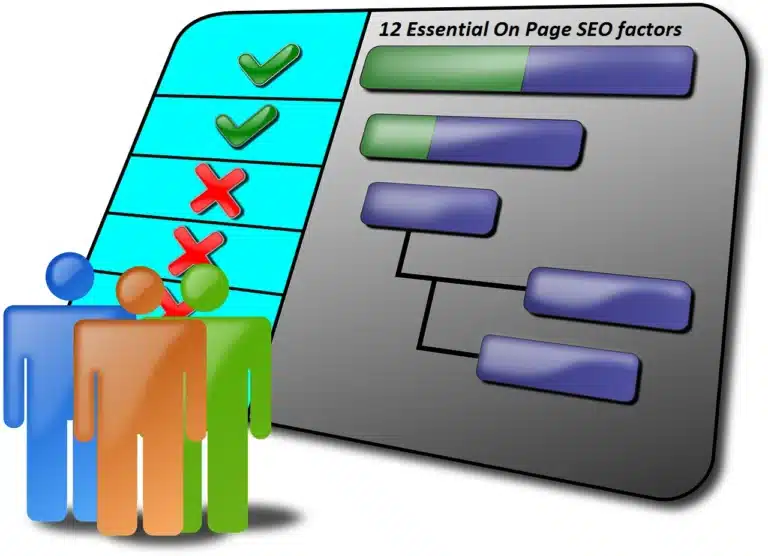You’ve created a fantastic website, are consistently posting quality material, and are active on social media, but you still aren’t showing up on Google’s front page. We understand that it’s annoying. It appears that search engine optimization (SEO) is a game. Don’t give up, though, just yet. If you follow the most recent SEO guidelines, you can outrank your rivals because the regulations are continuously changing.
The Shift to Mobile and Voice Search Optimization
With more people accessing the internet on mobile devices and using voice assistants, optimizing for these search methods is critical.
Focus on Mobile-Friendly Content
Make sure your website runs quickly and is responsive on mobile devices. Google prioritizes websites that are responsive for mobile users. Use bulleted lists, brief paragraphs, and sidebars with little text so they will display well on small screens.
Optimize for Voice Search
Voice search engines like Siri and Alexa are becoming more and more popular. Use natural language and long-tail keywords in page titles, headers, and content to rank well for voice search. Use “What are some useful search engine optimization tips?” as opposed to “SEO tips,” for instance. Write in an approachable, compelling tone since voice searchers also like conversational material.
Create Structured Data
Structured data refers to code you add to your website to provide additional details about your content to search engines. It helps search engines understand your content and rank it higher in results. Implement structured data for your business info, products, blog posts, and more. Some options include JSON-LD, Microdata, and RDFa.
You’ll be well-positioned for success in the new SEO landscape if you keep up with the latest developments in voice search, structured data, and mobile usage. While precise strategies could alter, the fundamental ideas—providing excellent, pertinent material that satisfies readers’ demands and addresses their questions—remain constant. Structured data, a user-focused content strategy, and mobile and voice search optimization can all help you improve your ranks and become more visible in search results.
Leveraging Long-Form Content and Videos
You should concentrate on producing excellent long-form material and video if you want to rank higher in search results. Aim for blog posts and videos that are at least 1,000 words or 3-5 minutes lengthy because search engines prefer in-depth, complete material.
Blog Posts
Write blog posts that provide value to your readers. Do in-depth how-to guides, listicles, case studies, or opinion pieces in your industry. Include images, embedded media, and internal links to other relevant content on your site. Publish new blog posts regularly to keep your content fresh.
Videos
Create tutorial films, product demos, behind-the-scenes footage, or conduct expert interviews because video is a very engaging kind of information. Include your goal keywords in the title, description, and transcript of your videos to improve their search engine optimization. To increase views and shares, promote your films on social media.
The more long-form, high-quality material you provide, the more chances search engines will have to index your website and place you for pertinent keywords. Regularly posting in-depth blog entries and videos will have a cumulative effect over time that will greatly raise your search engine rankings and organic traffic. While there is a role for short-form material, your SEO and content marketing strategy moving forward should focus on long-form content and video.
Create tutorial films, product demos, behind-the-scenes footage, or conduct expert interviews because video is a very engaging kind of information. Include your goal keywords in the title, description, and transcript of your videos to improve their search engine optimization. To increase views and shares, promote your films on social media.
The more long-form, high-quality material you provide, the more chances search engines will have to index your website and place you for pertinent keywords. Regularly posting in-depth blog entries and videos will have a cumulative effect over time that will greatly raise your search engine rankings and organic traffic. While there is a role for short-form material, your SEO and content marketing strategy moving forward should focus on long-form content and video.
Improving Site Speed and User Experience
To rank higher in search results, you need to focus on improving your site speed and user experience. Google considers these factors when determining search rankings, so optimizing them is key.
Reduce page load times.
A website that loads quickly attracts more visitors and gets better ranks. Make an effort to load your pages in under 2 seconds. Enable cache, minify CSS and JavaScript, and compress pictures. To find precise ways to speed up your site, use a tool like Google’s PageSpeed Insights.
Mobile-friendly design.
An improved mobile experience is crucial given the increase in searches conducted on mobile devices. Check that your website appears correctly on mobile devices and that the buttons and links are simple to tap. Think of an adaptive or responsive design. Google prioritizes websites that are responsive for mobile users.
Easy site navigation.
To make it simple for visitors to discover what they need, your website should be easy to navigate. Utilize clear headings and menus, and group stuff that is relevant together. Users can navigate the website with the use of breadcrumbs. Fix any pages or links that are broken. The likelihood that visitors will return increases with improved user experiences.
Quality content.
New, high-quality material performs better in search results and draws more links and social shares. Put your energy into producing blog entries, videos, and other types of media on subjects that will interest your audience. Throughout your text, naturally incorporate keywords. Your site will rank higher the more quality material it has.
Some of the most effective things you can do to boost your search rankings are posting valuable content, optimizing for site speed and user experience, and more. While SEO tactics are constantly evolving, giving your visitors the greatest experience possible will benefit you both now and in the future.
Building High-Quality Backlinks
Concentrate on developing high-quality backlinks to improve your site’s search engine positioning and increase visitors. Backlinks are links to your website from other websites. However, not all backlinks are made equal. In order to assess how much “link juice” other websites will flow onto your site, search engines like Google consider the quality and authority of the sites that link to you.
Comment on Relevant Industry Blogs
Leave thoughtful comments on influencer blogs in your industry. Mention a useful resource on your site and include a link back to the page. This helps establish you as an authority in your field and passes link equity to your site.
Guest Blogging
Pitch guest posts to industry blogs and news sites. Include a brief author bio with a link back to your website. Guest blogging is a great way to gain exposure and pick up authoritative backlinks.
Broken Link Building
Check other websites in your business for “404 – Page Not Found” issues and broken links. Speak with the webmaster and offer to replace the broken link with a different resource from your own website. You have obtained a high-quality backlink if they link to the page you suggested.
Resource Pages
Create useful resource pages on your site like glossaries, product comparisons, statistics, interviews, etc. Promote these pages to other sites as a helpful resource for their visitors. When they link to your resource page, it passes authority to your site.
Niche Directory Submissions
Submit your website to link databases and high-authority specialized directories. Concentrate on directories that examine submissions before approving them. These backlinks nonetheless aid in establishing your authority and relevance with search engines, despite the fact that the link juice is not very strong.
You may improve your site’s position in search results and increase organic traffic by creating a strategy that focuses on constructing high-quality, authoritative backlinks. Your rankings will rise over time if you continue to put effort into obtaining high-quality backlinks from reliable websites.
Utilizing AI and Machine Learning for Better Rankings
SEO is being transformed by AI and machine learning. Search engines are increasingly using artificial intelligence to determine ranks as they get more sophisticated. You must optimize for the algorithms if you want to boost your ranks. Here are some strategies for utilizing AI to improve search results:
Optimize for voice search
More individuals are using voice search as a result of the popularity of voice assistants like Siri and Alexa. Utilize natural language and conversational keywords to make your content voice search-friendly. Utilize natural language inquiries and phrases while concentrating on long-tail keywords.
Create machine-readable content
AI is used by search engines to read and comprehend content. Give your content semantic markup, such as JSON-LD, to make it more machine-readable. By doing so, search engines can better understand your material and give it a higher ranking.
Analyze your rankings with AI
AI tools may examine the trends in your rankings over time and identify the variables affecting them. They examine things like domain characteristics, backlink profiles, how rankings change after content revisions, and more. Take advantage of these AI SEO tools to learn more about your rankings and to make data-driven optimization choices.
Generate AI content
For your website, AI can automatically create blog posts, product descriptions, and other types of content. AI content generation helps fast produce more content to fill your site, even though the content may require some human evaluation. Your rankings will rise the more relevant, high-quality material you have
Continuously optimize
An continual process is SEO. Keep an eye on your rankings and make adjustments to raise them over time. Much of the optimization process is automated with the aid of AI and machine learning. AI will be ever more essential for getting and preserving high search ranks as search engines develop. AI-assisted continuous optimization is essential for SEO success.
Conclusion
You now have it. With these updated SEO guidelines at your disposal, you can outrank your rivals and upgrade your website. But keep in mind that SEO is a continuous process that needs continual supervision and adjustment to be successful. Keep abreast of the most recent algorithm updates, continue to produce high-quality content, create internal links, acquire more backlinks, accelerate your page load time, and interact with your audience. If you accomplish all of that, you will be well on your way to controlling the search results and mastering search engines. Now go forth, put these tactics into practice, and begin moving up the rankings!






